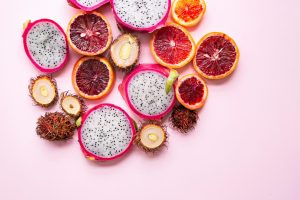Fava Beans and Lentils: Emerging Plant Proteins
When we think of protein, the first thing that often comes to mind is meat. But nowadays, with the increasing demand for vegetarian and vegan options, plant-based proteins are gaining a lot of attention. From tofu to quinoa, the options for plant proteins are rapidly expanding. Fava beans and lentils, two lesser-known options, are also emerging as popular choices. In this article, we will explore the benefits of fava beans and lentils as plant proteins and why they are becoming a popular alternative to traditional protein sources.
What are Fava Beans and Lentils?
Fava beans, also known as broad beans, are large flat beans that are commonly grown and eaten in Mediterranean and Middle Eastern countries. They have been cultivated for thousands of years and are now gaining popularity in other parts of the world. Lentils, on the other hand, are small, disc-shaped legumes that are a staple in Indian and Middle Eastern cuisines. They come in a variety of colors, including green, brown, red, and yellow.
The Nutritional Benefits
High in protein
One of the main reasons why fava beans and lentils are emerging as popular plant proteins is because of their high protein content. Fava beans contain about 26 grams of protein per cup, while lentils have around 19 grams of protein per cup. This makes them comparable to meat in terms of protein content, but with the added benefits of being low in fat and cholesterol-free.
Rich in fiber
Both fava beans and lentils are excellent sources of fiber. In fact, one cup of fava beans provides over 9 grams of fiber, while a cup of lentils contains about 15 grams. Including these legumes in your diet can help improve digestion, regulate blood sugar levels, and promote a healthy gut microbiome.
Loaded with essential nutrients
Fava beans and lentils are also rich in various vitamins and minerals that are essential for our overall health. Fava beans are a great source of iron, magnesium, and folate, while lentils provide a good amount of potassium, phosphorus, and zinc.
Health Benefits of Fava Beans and Lentils
Help with weight management
Since fava beans and lentils are high in protein and fiber, they can help keep you feeling full for longer periods of time. This can be beneficial for those trying to manage their weight or maintain a healthy weight. Additionally, their low-fat content makes them a great alternative to protein sources like red meat, which can be high in saturated fat.
Promote heart health
The high fiber content of fava beans and lentils can also play a role in promoting heart health. Fiber helps lower bad cholesterol levels and reduces the risk of heart disease. Furthermore, the potassium found in lentils can help regulate blood pressure and improve overall heart function.
Good for the environment
Eating more plant-based proteins like fava beans and lentils can have a positive impact on the environment. Raising livestock for meat production has a significant impact on greenhouse gas emissions, water usage, and land use. Switching to plant proteins can help reduce these negative effects and promote sustainable food choices.
Incorporating Fava Beans and Lentils into your Diet
Fava beans and lentils are versatile and can be easily incorporated into various dishes. Fava beans can be used in soups, stews, and salads, while lentils are commonly used in curries, salads, and even as a meat substitute in burgers and meatballs. They are also a great vegetarian and vegan option for traditional dishes like falafel or shepherd’s pie.
When cooking with fava beans and lentils, it is essential to properly prepare them beforehand. Soaking and rinsing them can help remove any anti-nutrients that may cause discomfort or bloating. It is also recommended to cook them thoroughly to ensure maximum digestion and absorption of their nutrients.
Final Thoughts
Fava beans and lentils are emerging as popular plant proteins due to their high nutritional value, health benefits, and versatile uses in cooking. They provide an excellent alternative to traditional protein sources and are a great way to incorporate more plant-based foods into our diets. So next time you’re looking for a protein-packed, nutrient-dense meal, consider adding fava beans and lentils to your plate.











